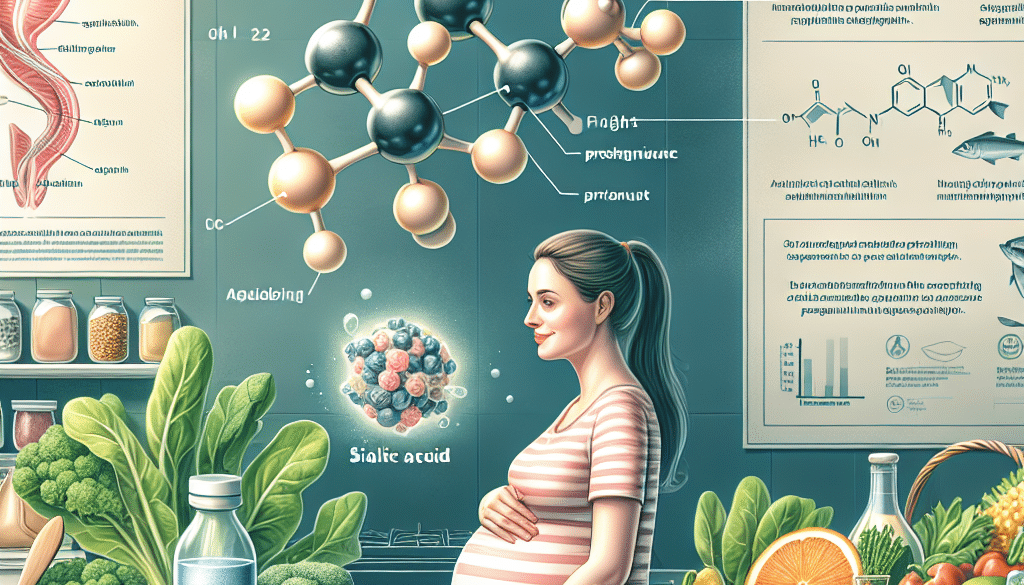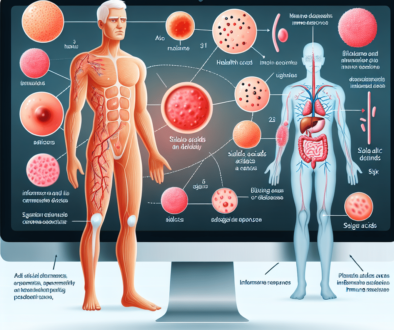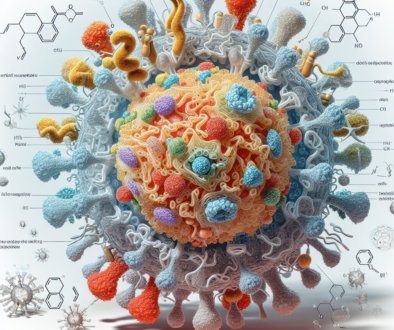Sialic Acid: Essential for Pregnancy Nutrition
-
Table of Contents
- Sialic Acid: A Vital Nutrient for Pregnancy Health
- Understanding Sialic Acid
- The Role of Sialic Acid in Pregnancy
- Sources of Sialic Acid
- Research on Sialic Acid and Pregnancy
- Case Studies and Statistics
- Challenges and Considerations
- Conclusion: The Importance of Sialic Acid in Pregnancy Nutrition
- ETprotein: Your Partner in Pregnancy Nutrition
Sialic Acid: A Vital Nutrient for Pregnancy Health

Pregnancy is a critical time for both the mother and the developing fetus, with nutrition playing a pivotal role in ensuring a healthy gestation period. Among the myriad of nutrients required, sialic acid emerges as a lesser-known yet essential component of pregnancy nutrition. This article delves into the importance of sialic acid, its functions, and its impact on pregnancy.
Understanding Sialic Acid
Sialic acid is a term that encompasses a family of nine-carbon sugars that naturally occur on the outer surface of cells and in bodily fluids. It plays a crucial role in cellular interactions and in the functioning of the immune system. Sialic acid is particularly abundant in the brain, where it contributes to cognitive functions and neural development.
The Role of Sialic Acid in Pregnancy
During pregnancy, the demand for sialic acid increases as it is vital for the development of the fetus’s brain and nervous system. The presence of sialic acid in the placenta is also indicative of its importance in fetal development. Here are some of the key roles sialic acid plays in pregnancy:
- Fetal Brain Development: Sialic acid is a major component of brain gangliosides and glycoproteins, which are essential for brain tissue formation and cognitive function.
- Immune Function: It modulates immune responses and helps protect the fetus by preventing pathogens from crossing the placental barrier.
- Cell Signaling: Sialic acid is involved in cell-to-cell communication, which is crucial for the development of organs and tissues.
Sources of Sialic Acid
While the body can synthesize sialic acid, dietary intake is necessary to meet the increased demands during pregnancy. Rich dietary sources of sialic acid include:
- Dairy products, especially human breast milk
- Eggs
- Meat
Human breast milk, in particular, has a high concentration of sialic acid, which is essential for the newborn’s brain development and immune function.
Research on Sialic Acid and Pregnancy
Several studies have highlighted the importance of sialic acid during pregnancy. For instance, research indicates that higher levels of sialic acid in breast milk are associated with improved cognitive development in infants. Additionally, studies on maternal nutrition suggest that adequate sialic acid intake during pregnancy can have long-term positive effects on a child’s mental abilities and overall health.
Case Studies and Statistics
Case studies have shown that when pregnant women consume diets rich in sialic acid, there are measurable benefits to the fetus. For example, a study published in the “American Journal of Clinical Nutrition” found that infants whose mothers had higher sialic acid intake during pregnancy scored better on cognitive tests in early childhood.
Statistics further support the importance of sialic acid in pregnancy nutrition. According to the World Health Organization, optimal nutrition during the first 1000 days of life, starting from conception, is critical for a child’s development, and sialic acid is a key component of this nutritional requirement.
Challenges and Considerations
Despite its importance, obtaining sufficient sialic acid can be challenging for some pregnant women due to dietary restrictions or preferences. Vegetarians and vegans, for example, may find it more difficult to source sialic acid since the richest sources are animal-based. In such cases, supplementation or careful dietary planning may be necessary.
Conclusion: The Importance of Sialic Acid in Pregnancy Nutrition
In conclusion, sialic acid is an essential nutrient that plays a significant role in fetal development and maternal health during pregnancy. Adequate intake of sialic acid through diet or supplements can support cognitive development in the fetus and contribute to a successful pregnancy outcome. Healthcare providers should emphasize the importance of sialic acid in prenatal nutrition and guide expectant mothers in incorporating appropriate sources into their diets.
ETprotein: Your Partner in Pregnancy Nutrition
For pregnant women seeking high-quality protein sources that may also contribute to their sialic acid intake, ETprotein offers a range of organic bulk vegan proteins. While plant-based proteins may not be as rich in sialic acid as animal-based sources, they are an important part of a balanced diet and can support overall health and nutrition during pregnancy.
ETprotein’s product line includes organic rice protein, pea protein, and various seed proteins, all characterized by a neutral taste and non-GMO, allergen-free attributes. These proteins can be an excellent addition to a pregnant woman’s diet, ensuring she receives the necessary amino acids for her own health and the development of her baby.
For those interested in exploring protein options that support pregnancy nutrition, ETprotein’s offerings provide a reliable and high-quality choice. Contact ETprotein to learn more about their products and how they can fit into a nutritious pregnancy diet.
About ETprotein:
ETprotein, a reputable protein and L-(+)-Ergothioneine (EGT) Chinese factory manufacturer and supplier, is renowned for producing, stocking, exporting, and delivering the highest quality organic bulk vegan proteins and L-(+)-Ergothioneine. They include Organic rice protein, clear rice protein, pea protein, clear pea protein, watermelon seed protein, pumpkin seed protein, sunflower seed protein, mung bean protein, peanut protein, and L-(+)-Ergothioneine EGT Pharmaceutical grade, L-(+)-Ergothioneine EGT food grade, L-(+)-Ergothioneine EGT cosmetic grade, L-(+)-Ergothioneine EGT reference grade and L-(+)-Ergothioneine EGT standard. Their offerings, characterized by a neutral taste, non-GMO, allergen-free attributes, with L-(+)-Ergothioneine purity over 98%, 99%, cater to a diverse range of industries. They serve nutraceutical, pharmaceutical, cosmeceutical, veterinary, as well as food and beverage finished product distributors, traders, and manufacturers across Europe, USA, Canada, Australia, Thailand, Japan, Korea, Brazil, and Chile, among others.
ETprotein specialization includes exporting and delivering tailor-made protein powder and finished nutritional supplements. Their extensive product range covers sectors like Food and Beverage, Sports Nutrition, Weight Management, Dietary Supplements, Health and Wellness Products, and Infant Formula, ensuring comprehensive solutions to meet all your protein needs.
As a trusted company by leading global food and beverage brands and Fortune 500 companies, ETprotein reinforces China’s reputation in the global arena. For more information or to sample their products, please contact them and email sales(at)ETprotein.com today.














